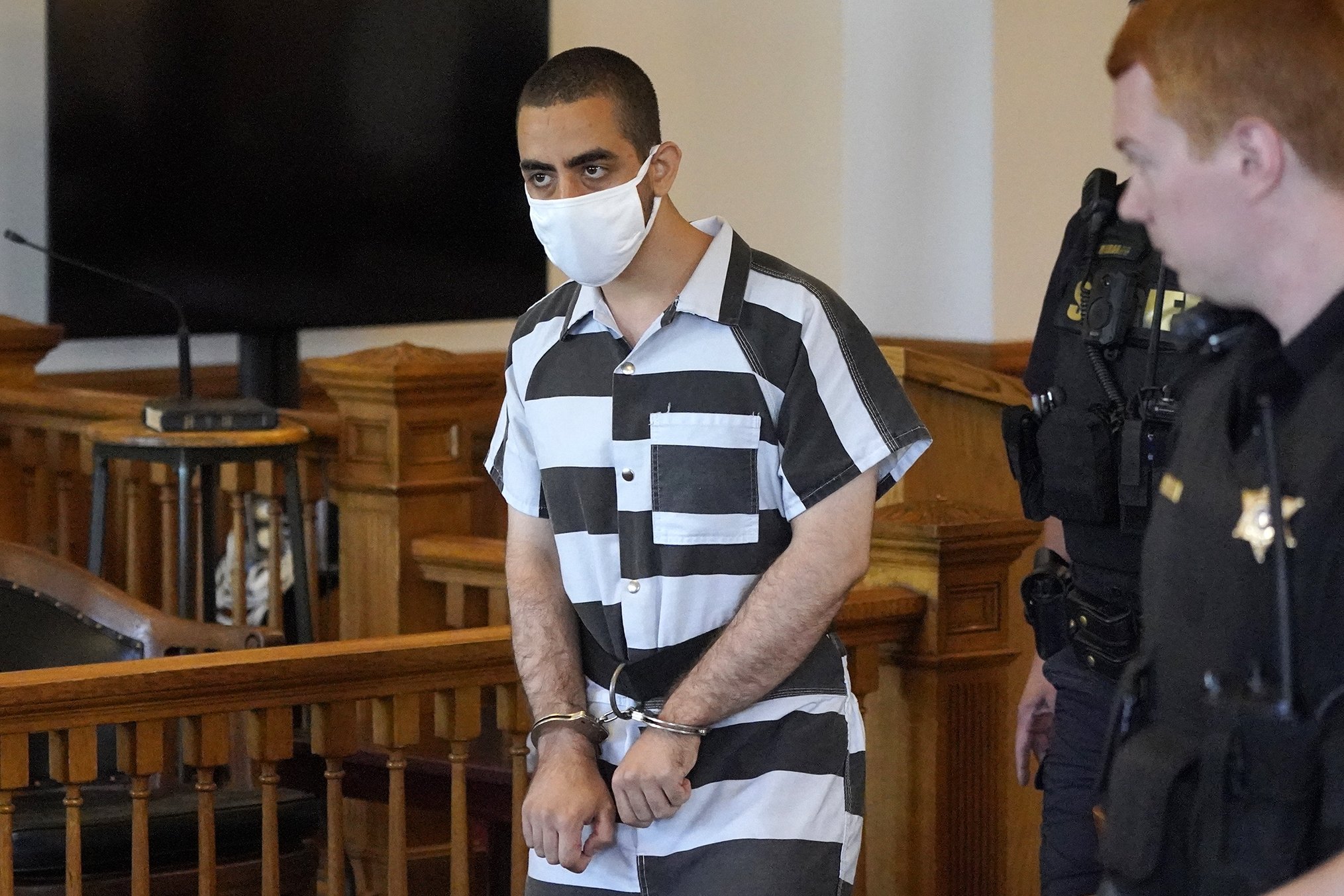© Turkuvaz Haberleşme ve Yayıncılık 2024
Controversial British American author Salman Rushdie has been taken off his ventilator and is talking as he recovers from being stabbed in the U.S.
British American writer Aatish Taseer said, in a since-deleted tweet, that the 75-year-old was "off the ventilator and talking (and joking)," which was then confirmed by the author's agent Andrew Wylie on Saturday.
Wylie had earlier said Salman was using the ventilator and could lose an eye after he sustained injuries to his arm and liver in the attack.
The Indian-born Briton, whose novel "The Satanic Verses" led to death threats from Iran in the 1980s, was about to deliver a lecture in New York state Friday, when he was attacked.
Meanwhile, the man accused of stabbing Rushdie pleaded not guilty to attempted murder charges Saturday.
Hadi Matar, 24, was arraigned in court in New York state, with prosecutors outlining how Rushdie had been stabbed approximately 10 times in what they described as a planned, premeditated assault.
After the on-stage attack Friday, Rushdie had been helicoptered to hospital and underwent emergency surgery.
Author of controversial novels like "The Satanic Verses" and "Midnight's Children," Rushdie had lived in hiding for years after Iran's first supreme leader Ayatollah Ruhollah Khomeini issued a religious decree, or fatwa, against him for hurting religious feelings.
And while Friday's stabbing triggered international outrage, it also drew applause from hardliners in Iran and Pakistan.
President Joe Biden on Saturday called it a "vicious" attack and offered prayers for Rushdie's recovery.
"Salman Rushdie – with his insight into humanity, with his unmatched sense for story, with his refusal to be intimidated or silenced – stands for essential, universal ideals. Truth. Courage. Resilience," Biden said in a statement.
Matar is being held without bail and has been formally charged with second-degree attempted murder and assault with a weapon. Police provided no information on his background or what might have motivated him.

The 75-year-old novelist had been living under an effective death sentence since 1989 when Iran's then-supreme leader Khomeini issued a religious decree, or fatwa that put a bounty of $2.8 million on him.
The fatwa followed the publication of the novel "The Satanic Verses," which enraged some Muslims who said it was blasphemous for its portrayal of Islam and the Prophet Mohammed.
In a recent interview with Germany's Stern magazine, Rushdie spoke of how, after so many years living with death threats, his life was "getting back to normal."
"For whatever it was, eight or nine years, it was quite serious," he told a Stern correspondent in New York.
"But ever since I've been living in America, since the year 2000, really there hasn't been a problem in all that time."
Rushdie moved to New York in the early 2000s and became a U.S. citizen in 2016. Despite the continued threat to his life, he was increasingly seen in public – often without noticeable security.
Security was not particularly tight at Friday's event at the Chautauqua Institution, which hosts arts programs in a tranquil lakeside community near Buffalo.
Witnesses said Rushdie was seated on stage and preparing to speak when Matar sprang up from the audience and managed to stab him before being wrestled to the ground by staff and other spectators.
Matar's family appears to come from the village of Yaroun in southern Lebanon, though he was born in the United States, according to a Lebanese official.
An AFP reporter who visited the village Saturday was told that Matar's parents were divorced and his father – a shepherd – still lived there.
Journalists who approached his father's home were turned away.
Matar was "born and raised in the U.S.," the head of the local municipality, Ali Qassem Tahfa, told AFP.
